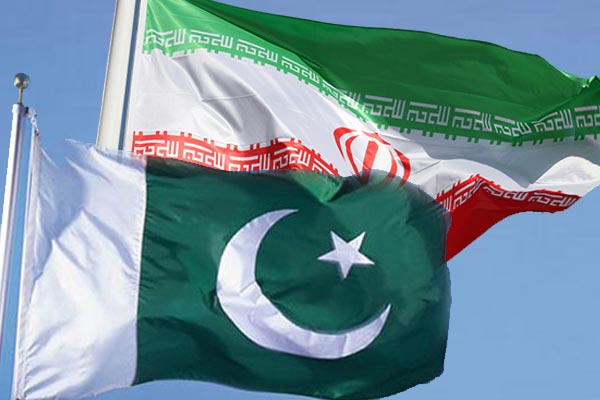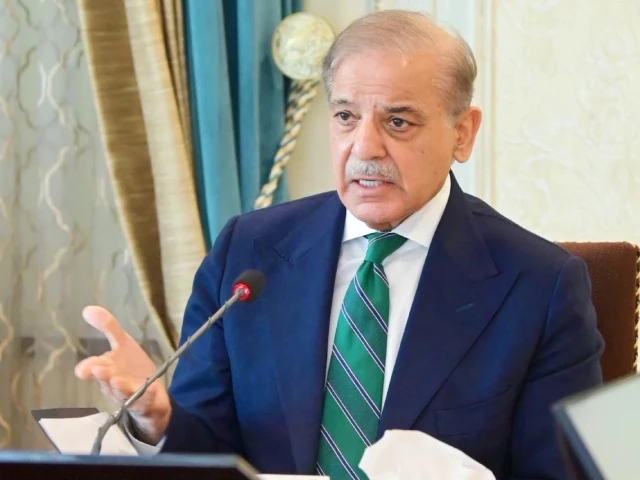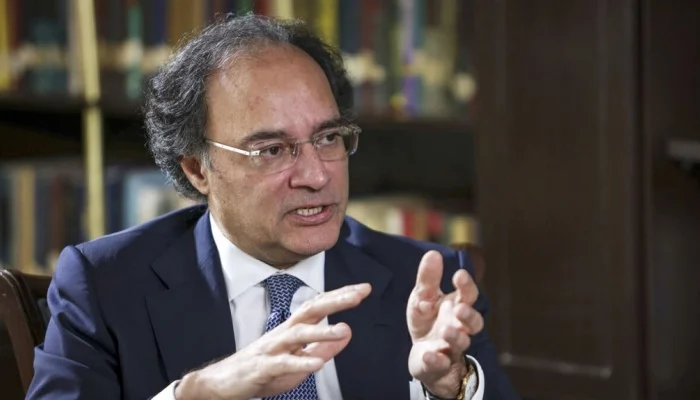PTBP Web Desk
Pakistan and Iran are entering a decisive phase in their long-discussed Free Trade Agreement (FTA), as the finalised text of the accord is now under internal review by Pakistani authorities. The formal approval process is expected to begin soon, marking a milestone in regional economic cooperation between the two neighbouring countries.
The development was revealed during a meeting between Federal Minister for Commerce Jam Kamal Khan and Iranian Ambassador to Pakistan Reza Amiri-Moghaddam in Islamabad. The meeting focused on strengthening bilateral trade, cross-border connectivity, and identifying new investment opportunities across key sectors.
During the meeting, Commerce Minister Jam Kamal Khan informed that the text of the Pakistan-Iran FTA, earlier signed in Islamabad, has now entered its internal review phase. The government plans to present it for official approval soon.
Once approved, the agreement will serve as a comprehensive framework to reduce tariffs, streamline customs procedures, and promote joint ventures between Pakistani and Iranian businesses. Officials believe that the FTA will help both countries expand their export base and achieve the target of $10 billion in bilateral trade by 2028.
Ambassador Amiri hailed the progress, calling it a “significant step forward” in deepening economic relations. He added that direct flights between Quetta and Zahedan have recently resumed, improving both trade connectivity and people-to-people exchanges along the border regions.
The Iranian envoy highlighted ongoing trade cooperation, particularly in the agriculture and food sectors. He recalled recent agreements under which Iran had imported 400,000 tons of rice, 300,000 tons of meat, 200,000 tons of maize, and 50,000 tons of animal feed from Pakistan.
According to Amiri, Iran has completed its rice import commitments and is now ready to proceed with the purchase of maize and animal feed, further strengthening agricultural trade between the two nations.
Minister Jam Kamal extended an invitation to Iranian companies and state enterprises to participate in the FoodAg Exhibition, scheduled to be held from November 25 to 27, 2025, at the Karachi Expo Center. He said the event would offer a valuable platform for businesses to explore joint ventures, investment opportunities, and partnerships in the agri-food and livestock sectors.
To further consolidate bilateral relations, Jam Kamal proposed high-level visits between provincial and local leaders from both sides. He suggested that the Chief Minister of Balochistan and the Governor of Zahedan meet to discuss cross-border trade development and strategies to improve livelihoods for residents of the frontier regions.
He also proposed inviting Pakistani ministers of maritime affairs, railways, and communications to visit Iran to explore cooperation in logistics, shipping, and regional connectivity. These engagements, he said, would help both countries align infrastructure projects with mutual trade and transportation goals.
The federal minister acknowledged that over the past year, Pakistan-Iran relations have experienced positive momentum through increased engagement at both government and business levels. He thanked the Iranian ambassador for recognising Pakistan’s amendments to the barter trade mechanism under the SRO, which have simplified cross-border trade operations.
The barter mechanism, recently improved by Pakistan, has facilitated border trade in essential commodities such as food, livestock, and construction materials, reducing the dependency on cash-based transactions.
Both officials reaffirmed the shared vision of their leadership — to strengthen economic integration and achieve $10 billion in annual bilateral trade by 2028. They also expressed satisfaction over the successful 22nd Session of the Pakistan-Iran Joint Economic Commission, held in Tehran on September 15–16, 2025, which laid the groundwork for broader cooperation in energy, transport, and border trade.
Jam Kamal underlined that the Ministry of Commerce, in collaboration with key stakeholders such as the Federal Board of Revenue (FBR) and the Ministry of Communications, is working to address operational challenges faced by Iranian trucks entering Pakistan.
He called for the reactivation of the Pakistan-Iran Joint Business Council (JBC) to enhance business-to-business (B2B) engagement between private sectors of both countries. The JBC, when reactivated, will serve as a vital platform for entrepreneurs to share expertise, discuss trade barriers, and propose policy solutions.
Highlighting ongoing progress, the commerce minister noted the reactivation of the Mand-Pishin Joint Border Market on July 30, 2025. He urged both sides to accelerate the operationalisation of the remaining two joint border markets at Chegdi-Kouhak and Gabd-Reemdan, which are expected to significantly increase local employment and trade volumes.
Jam Kamal stressed the importance of reducing non-tariff barriers (NTBs) — such as lengthy customs checks and inspection delays — which have long hampered trade between the two nations. He proposed closer collaboration between Pakistan’s and Iran’s National Plant Protection Organizations (NPPOs) and quarantine departments to ensure efficient cross-border trade of agricultural and livestock products.
Strengthening cooperation between technical bodies would not only facilitate smoother trade but also help meet international phytosanitary and food safety standards, boosting export competitiveness in regional markets.
The discussions reflected the mutual desire to strengthen economic, political, and cultural ties between Pakistan and Iran. Both countries view the FTA as a strategic opportunity to expand regional connectivity through initiatives that align with Pakistan’s Vision 2025 and Iran’s regional trade strategy.
Experts believe the Pakistan-Iran Free Trade Agreement could open new avenues for energy cooperation, transit trade, and industrial collaboration, especially given the two nations’ proximity and shared border. The agreement is also expected to attract foreign investors interested in regional trade corridors connecting Central Asia, South Asia, and the Middle East.
As both sides move closer to the FTA’s formal signing, economic observers say the accord could transform Pakistan-Iran trade relations from a limited bilateral exchange into a comprehensive partnership driving regional growth and stability.




